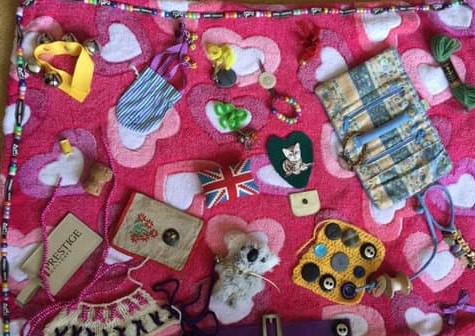This seems to be a tricky subject as I’m reading more and more about clients actually hitting their carers which must be quite horrific for that particular carer.
We need to try and work out what prompted this aggression. Maybe the client suffers with depression and this needs to be brought to the attention of the GP to see if any medication can be prescribed.
Some clients with dementia get very upset because they don’t know what’s happening to themselves. Most of this revolves around dementia sufferers.
There are two types of aggressive behaviour:
Verbal – which can include swearing, screaming, shouting or making threats
Physical – which can include hitting, pinching, scratching, hair pulling or biting
The client may have been aggressive before dementia, however, aggression may develop as the dementia increases. The client may have a sense of being out of control, frustration or a feeling that they are not being listened to or understood.
Getting to know the client and how they react and deal with things, their preferences and routines can all help to keep them calmer. As dementia progresses the client may not be able to express themselves in words. Their behaviour may be the best way for them to communicate what they want.
There are various things that we as carers must look out for.
The client may be in pain and suffering with a urinary tract infection (UTI). They may also get very confused.
They may be suffering with the side effects of their medication which can make them become drowsy and confused. This can make it harder for you to communicate with them to try and help.
They may be too hot/cold, or it could be too noisy for them. They could be bored and I do know of a lot of carers who have dedicated their time in making fidget blankets for their clients to keep them busy and occupied.

The client may feel frustrated that they’re not able to do the things they used to. They may get frustrated if we or the family assume that they can’t do things for themselves and take over or they get left out of the decision making.
As the dementia progresses, they may feel uncomfortable in their own home thinking that it isn’t their home. They may want to go to work or go and pick their husband up from work forgetting that he passed away several years ago.
They may feel threatened by a carer when they need personal care and think of it as an invasion of their personal space, especially when they don’t understand what the dementia is doing to them.
Clients with dementia sometimes struggle to understand what’s going on around them, and this can be confusing and frightening. They may be feeling lonely or isolated and that they are being left out. This is probably why they follow you around from room to room.
They need things to stimulate their senses – sight, hearing, touch, smell and taste.
We as carers may find it difficult to understand the client but their behaviour will have meaning to them. They are trying to stop themselves from feeling so confused.
The client may also try to hide their condition from others. I had a client who reminded me that I was her ‘friend’ before we went out for tea with someone she knew.
That’s an awful lot for the carer to deal with and there may be times when you need support from professionals. Sudden changes in behaviour are often caused by physical health problems especially when the client seems more agitated or confused than normal. Make an appointment with the GP and ask them to check for infection, pain or constipation. Depression can often be managed with medication.
Here are a few examples of things you can do to reduce challenging behaviour:
- Help them to stay in touch with friends and relatives
- Encourage them to do things they enjoy
- Reduce noise where necessary and improve the lighting
- Let them keep their favourite jumper or keepsake close to them
Try not to argue with them, if the client believes she must go and collect her husband from work, don’t tell her she’s wrong. Ask her to tell you more about her husband and try to steer the conversation away from work.
It’s an automatic reaction for us to feel startled or angry when the client becomes angry for no reason. Try not to show that to the client. Sometimes it’s easier to walk away into another room for a couple of minutes to give them a chance to calm down or even forget what it was about.
When someone lifts a hand to attack or hit just hold their hand for a minute then lower it.
If you have more suggestions to help other carers with their experience of working with dementia clients, please add them in the comments section below.


Great article 😊
So true Lorna the best way I know to deal with this. I wish that I had this blog when I first started as a carer, my first experience was when my wonderful loving gent ran out of his medication and accused me of not putting any biscuits out for him and his wife (he had eaten them all) I assured him that I would in future make sure I didn’t forget again, and rushed off to phone the family to replenish his tablets. I have so many wonderful memories.